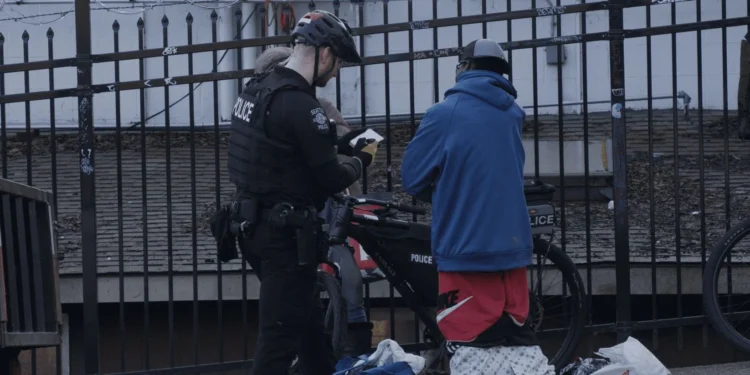Seattle police arrested two people and detained several others early Wednesday morning after dismantling what investigators describe as a major drug distribution operation at an auto body shop in the Chinatown-International District.
The arrests occurred at Saeteun’s Garage, Auto Body Customs on 8th Avenue South and South Jackson Street following a two-month surveillance operation. Undercover investigators began monitoring the business after observing suspected customers queuing outside the building each morning.
“The two primary suspects are arrested for dealing narcotics and will face charges for that, and then many of the employees inside were also involved in this activity,” said Seattle Police Department Captain Steve Strand.
Police have not disclosed whether drugs were recovered during the operation, though officials indicate sufficient evidence exists to file charges. The investigation suggests the auto shop served as a front for drug distribution activities rather than a legitimate business operation.
The case highlights ongoing challenges in the Chinatown-International District, an area that has struggled with various public safety issues in recent years. The neighbourhood has experienced increased crime concerns alongside broader economic pressures affecting local businesses and residents.
Captain Strand indicated that authorities plan to pursue additional enforcement actions beyond criminal charges. “As far as the business goes, we’re going to work with our partners in the City Attorney’s Office with the new nuisance abatement laws and see if we can close down this building entirely and the business itself,” he said.
The reference to nuisance abatement laws suggests police intend to use civil enforcement mechanisms to permanently shut down the operation. These laws allow authorities to target properties used for illegal activities, potentially preventing future criminal enterprises from operating at the same location.
The two-month surveillance period indicates a substantial investigative effort preceded the arrests. Extended surveillance operations typically involve significant police resources and suggest authorities viewed the operation as a priority target rather than an opportunistic bust.
For the Chinatown-International District community, the arrests may provide relief from daily disruptions caused by the suspected drug activity. Residents and legitimate businesses have increasingly expressed concerns about public safety and the impact of criminal activity on the neighbourhood’s economic vitality.
However, the operation also raises questions about the broader drug trade in Seattle and whether dismantling individual distribution points meaningfully reduces overall drug availability. Law enforcement success in closing one operation does not necessarily prevent others from emerging elsewhere.
The case demonstrates how criminal enterprises sometimes exploit legitimate businesses as cover for illegal activities. Auto shops, with their frequent customer traffic and warehouse-style spaces, can provide convenient fronts for drug distribution operations whilst maintaining the appearance of normal commercial activity.
The investigation’s outcome will depend partly on the evidence gathered during the surveillance period and any cooperation from those detained. The involvement of multiple employees suggests a coordinated operation rather than isolated criminal activity by individual workers.







